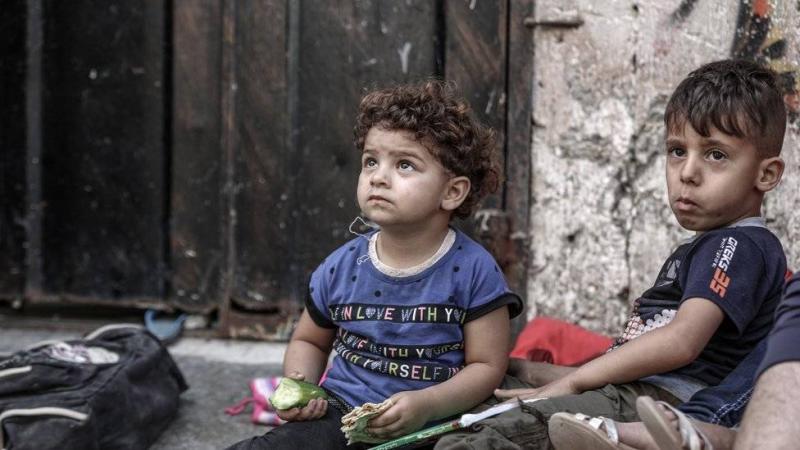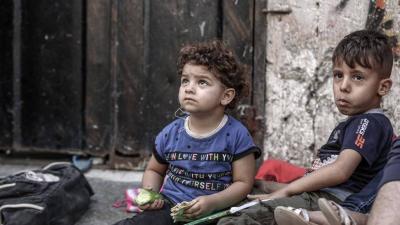As the Israeli war on the Gaza Strip continues into its third month, claiming more lives, the territory has become "the most dangerous place in the world" for children, according to UNICEF's spokesperson for the Middle East and North Africa, Selim Oweis, on Wednesday. He explained that the situation in Gaza, after 82 days of ongoing war, is worsening, stressing that the humanitarian condition is horrific, there is no safe place, and the rate of casualties among children is alarming.
In an interview with AWP, he added that about one million children have been forcibly displaced from their homes and are being pushed further south into narrow and crowded areas without water, food, or protection, lacking the necessities for survival, thus exposing them to an increased risk of respiratory infections and communicable diseases due to the polluted environment, in addition to dehydration, malnutrition, and illness. He noted that newly displaced children in the southern part of the strip are suffering from a severe shortage of water supplies, receiving only (1.5-2 liters) of water daily, which is far below the minimum recommended in emergencies (15 liters per day) or the minimum required for survival (3 liters daily). They are in urgent need of food, water, shelter, medicine, and protection.
He pointed out that at least 50% of water and sanitation facilities have been damaged due to the ongoing hostilities, alongside the lack of electricity supplies, fuel shortages, restricted access, and infrastructure damage. Additionally, he stated that thousands of children have been killed, with many more injured, including at least a thousand who have lost limbs, while others have suffered burns and wounds. He said: "There are children who have lost the ability to walk, and others will suffer for life due to their injuries."
Regarding the number of children who have lost their parents or been separated from them, Oweis clarified that "it is difficult to obtain accurate figures, but from our experience in conflicts and emergencies around the world, it can be estimated that about 1% of displaced children have been separated from their parents." He reiterated that Gaza has become the most dangerous place in the world for children's lives, with dozens of children being killed daily, and the constraints and challenges on delivering vital aid are akin to a death sentence for the young.
It is worth noting that approximately 4,760 aid trucks entered Gaza through the Rafah crossing during the past two months; however, this amount does not meet the needs of the densely populated area. According to UN estimates, the Gaza Strip requires about 500 trucks daily to meet the needs of its population, which has been besieged for more than 16 years.




